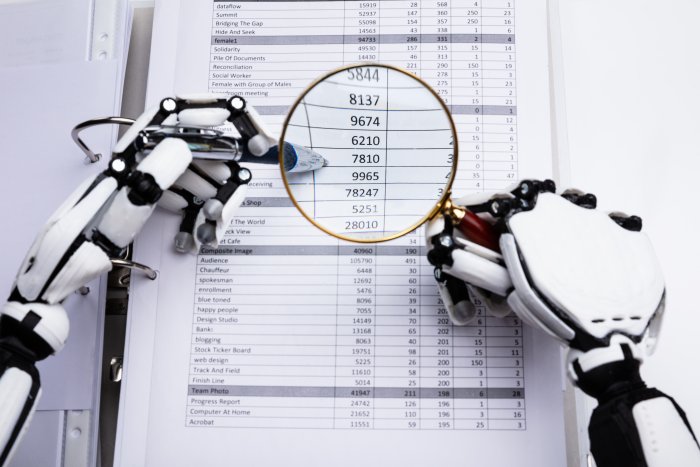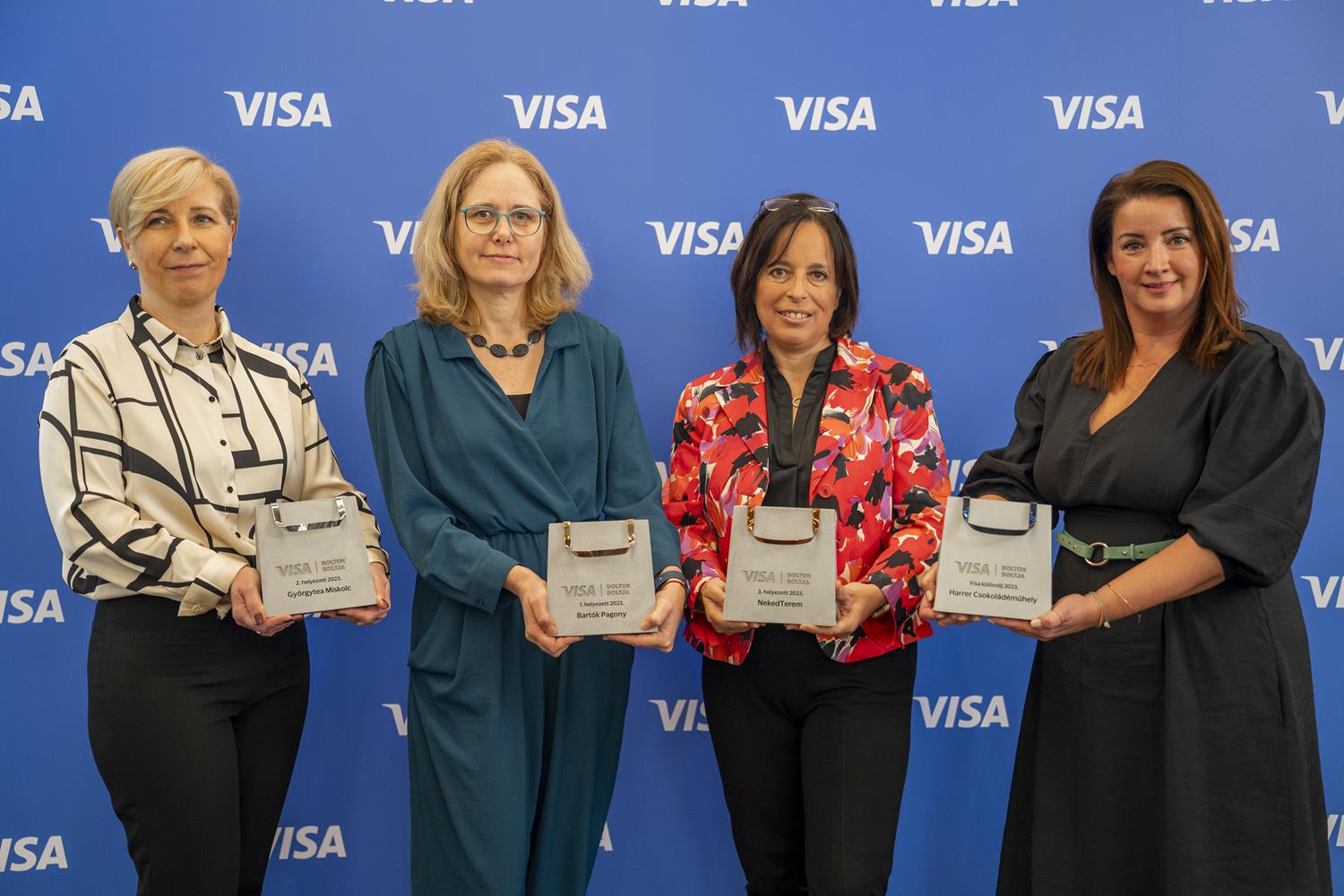The Drive Toward (Partially) Automated Accounting

Andrey Popov/Shutterstock.com
From the first forms of documentation in ancient city-states, to the double-ledger accounting system in Renaissance Florence, innovative ways of documenting and accounting for assets and liabilities have always benefitted the societies and institutions that adopted them. The Budapest Business Journal discovers the picture in Hungary.
Photo by Andrey Popov/Shutterstock.com
How are Hungarian companies adapting to the appearance of online solutions, how is the government incentivizing them to do so, and how might automation further affect the accounting profession?
Réka Märtel is a professional business consultant who specializes in automating accounting processes for large firms. I spoke with her and an academic colleague, who works with many smaller clients and who asked to remain anonymous for this article, about a recent survey that described how many accountants spend time on work that could easily be done by their clients though automated solutions online.
Asked whether she thought accountants primarily spent their time performing recording tasks that didn’t necessarily require their expertise, Märtel made the point of distinguishing between accountants at larger corporations and those of smaller enterprises.
“As a business advisor, I generally work for corporations supporting accountants within those corporations. I can also see how small accountants work, and I have some clients who are owners of small- or medium-size business entities, and I can see that those small enterprises really do not have an interest in digitalizing their transactions,” she explains.
“They do not prefer using electronic invoicing, neither on the incoming and nor on the outgoing side. I’m also convinced that even this sector will change after a time. But what I’m sure of is that the corporate world is already changing, and the proportion of transactional work done by accountants there is decreasing day by day,” she says.
“I’ve participated in many projects about automating and digitalizing the accounting flows of the corporations. And they are using incredible tools for accepting digital invoices, or even hard copy invoices which are scanned, and then transforming the data from those supplier invoices into electronic records, which are then, based on certain rules, automatically converted into accounting transactions,” Märtel says.
Her colleague, who works primarily with smaller companies, said his experience was largely similar to what Märtel had described.
Complexity is Key
“I think it depends on the complexity of the business processes, on the one hand. And on the other hand it’s a matter of money. It’s the budget. So, smaller businesses just simply cannot afford to have all those digital systems. They don’t necessarily need them, that’s the truth,” he points out.
In regard to his own personal experience as a professional accountant, he said he could relate to the results of the survey.
“Well, I’ve never measured it, so I can’t say it’s exactly three-quarters, or if it’s more or less, but most of my time I deal with reporting data, so putting data into the system, because the business documents are not digitized. This is a kind of manual digitalization process.”
When asked whether he thought that any of his small company clients were leaning towards digitalizing their accounting processes, he brought up an impending change NAV has announced regarding invoice reporting.
“Actually, the incentive was given to them by the government, to be more precise by the tax authority. As of July 1, you have to report the content of almost all your outgoing invoices to the tax authority. Until that day, we have this HUF 100,000 threshold, but after that it’s gone,” he says.
“These entities typically have smaller invoices with smaller amounts, but now they, too, will have to directly report to the tax authority. So, that could be done manually or automated. And, of course, it’s in the interest of everybody that it’s automated. That’s pushed them slightly towards digitalization.”
Even in an environment where, as he earlier pointed out, budgets are smaller, cost need not be a barrier in this instance. “There are lots of free solutions to do that, so I don’t think that’s really a problem for them. Not to mention that it’s actually easier and quicker for themselves too to prepare those invoices using software instead of manually writing them. This is a rare case where the interests of the government and those who want to obey the rules are the same.”
‘Lots of Estimates’
The academic accountant also had some thoughts about the ease or difficulty of automating certain aspects of accounting.
“Larger companies used to employ many data recorders, whose only task was to record data from the business documents into the system. These are the positions that will disappear very soon. But the other part of accounting, when it comes to acting really professionally, I don’t think that could be digitized or automated in the near future. Accounting is actually not as precise as you might think. There are lots of estimates. So, lots of things that require professional judgement, and that can’t be automated, or would be difficult to automate.”
One such example he provided included depreciation. “In order to account for the depreciation, you have to determine the useful life of the asset; that’s a matter of professional judgement. You have to determine it for yourself. And there is salvage or residual value; again, you have to make the estimate for yourself. Of course, it could be automated, we can use boilerplate solutions and claim that all computers are to be useful for three years, all computers are to have a residual value of 10% of their original purchase price, but it doesn’t necessarily result in useful information for decision makers,” he argues.
Märtel points out that automation will, naturally, affect not just professions such as hers, but society at large.
“Education will be of even higher importance for us, because all the simple work will be done by machines or automated somehow. So, what remains really needs educated people, who are able to think critically, who are able to think creatively, to be innovative and to find out, or create knowledge, which is not rule-based,” she argues.
“Once, I heard someone say, someone who is talented can find some knowledge on their own that was created and recognized before, while someone who is a genius can find out something new. I think this also applies to automation. We will need more people who are close to genius, or who are very creative. Creativity and innovativeness will be of higher importance,” Märtel believes.
SUPPORT THE BUDAPEST BUSINESS JOURNAL
Producing journalism that is worthy of the name is a costly business. For 27 years, the publishers, editors and reporters of the Budapest Business Journal have striven to bring you business news that works, information that you can trust, that is factual, accurate and presented without fear or favor.
Newspaper organizations across the globe have struggled to find a business model that allows them to continue to excel, without compromising their ability to perform. Most recently, some have experimented with the idea of involving their most important stakeholders, their readers.
We would like to offer that same opportunity to our readers. We would like to invite you to help us deliver the quality business journalism you require. Hit our Support the BBJ button and you can choose the how much and how often you send us your contributions.










